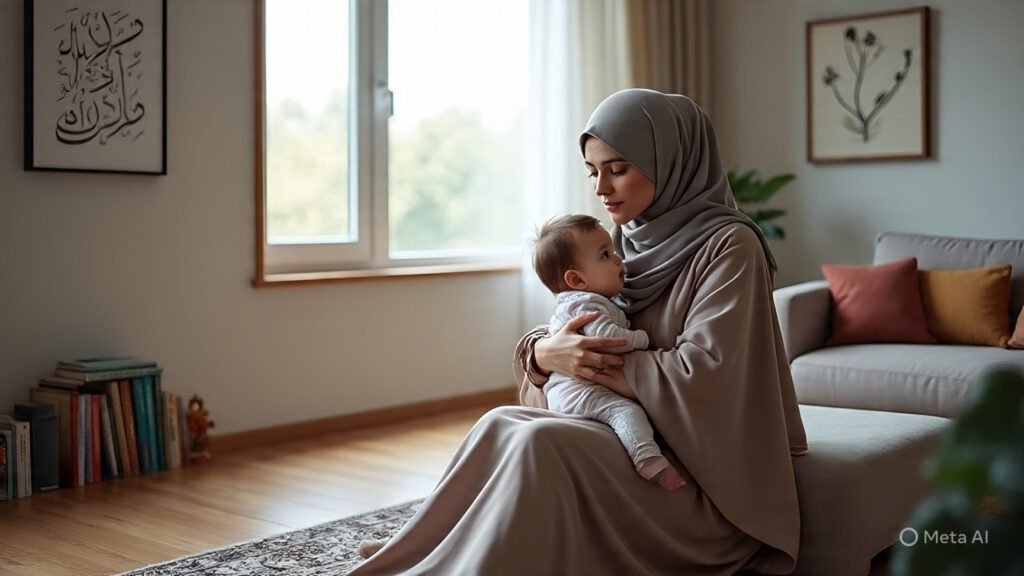- 10. Cancel Culture and Women in Da’wah – Motherhood Without a Voice?
In today’s hyper-connected world, Muslim women who step into the public space—especially those involved in da’wah (Islamic outreach)—face increasing pressure to speak flawlessly, dress perfectly, and act beyond reproach. One wrong statement, one misstep, and the digital world is ready to pounce. Welcome to cancel culture.
But what happens when this unforgiving culture targets Muslim women who are also mothers? Women who are juggling Islamic teaching, social media scrutiny, public expectations, and private responsibilities. Is there room in the da’wah space for imperfection, growth, and balance? Or are we raising the bar so high that it becomes impossible for women to contribute?
This post explores how cancel culture is affecting Muslim women in the West—especially those who are active in da’wah—and how Islamic principles can help restore balance, mercy, and dignity.
What is Cancel Culture?
Cancel culture is the practice of publicly calling out and rejecting individuals—often online—for statements or behaviors considered unacceptable. It often lacks due process, context, or room for growth. While accountability is important, cancel culture quickly becomes toxic when it:
- Labels people based on one mistake
- Leaves no room for repentance or learning
- Publicly humiliates instead of privately advising
- Disproportionately targets women, especially mothers
In the Western da’wah scene, Muslim women who speak up are increasingly vulnerable to this trend.
The Burden on Muslim Women in Da’wah
Women in da’wah today walk a tightrope. They’re expected to be knowledgeable but humble, confident but soft-spoken, active in the community but devoted to their children. And they’re often judged more harshly than their male counterparts.
Some common struggles include:
- Being criticised for appearing online while being mothers
- Facing backlash for their hijab, makeup, accents, or even facial expressions
- Being accused of chasing fame when they speak out
- Receiving little support when targeted by online mobs
- Balancing late-night content creation with early-morning school runs
When public life becomes a minefield, many women retreat—leaving a vacuum in the Muslim discourse that desperately needs female voices.
Motherhood: Seen as a Limitation, Not an Asset
In Islamic tradition, motherhood is honoured, not sidelined. Yet in the online da’wah space, some mothers are treated as though they can’t or shouldn’t lead discussions.
They are told:
- “Focus on your children, not public speaking.”
- “You’re too emotional to talk about serious topics.”
- “You shouldn’t be doing da’wah if your home isn’t perfect.”
But history tells a different story. From the Prophet’s wives to scholars like Fatima al-Fihri, women were scholars, teachers, and mothers—often all at once.
How Islam Counters Cancel Culture
Islam promotes accountability with compassion, not humiliation. The Prophet Muhammad (peace be upon him) corrected mistakes gently. He encouraged privacy, sincerity, and giving people the chance to grow. The goal was always to uplift, not destroy.
Here’s what Islam teaches that cancel culture ignores:
- Sincere advice is given privately, not publicly.
- Everyone is capable of growth and change.
- Public shaming is a sin, not a virtue.
- Mothers have the right to contribute beyond the home.
The Qur’an and Sunnah consistently advocate mercy over judgment, especially for those who carry the heavy task of raising the next generation while also guiding the community.
Where Do We Go from Here?
Muslim communities in the West need to make space for women—especially mothers—to participate in meaningful da’wah without fear of cancellation.
That means:
- Letting women speak, write, and teach without being perfection-policed
- Encouraging balanced roles where motherhood is seen as strength, not a barrier
- Challenging the mob mentality that reduces a person to their worst moment
- Building a culture of nasiha (advice), not exposure
If we don’t, we risk silencing voices our ummah desperately needs—women who understand both the faith and the challenges of modern life.
Final Thoughts
The pressure of being a Muslim woman in da’wah is real. When you add motherhood to the mix, the weight becomes heavier. Cancel culture doesn’t just hurt individuals—it shrinks the space for honest, thoughtful, and needed conversations.
Islam offers a better model. One rooted in mercy, growth, humility, and community. It’s time we return to it.


